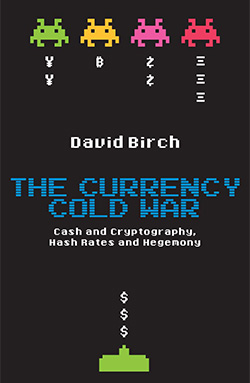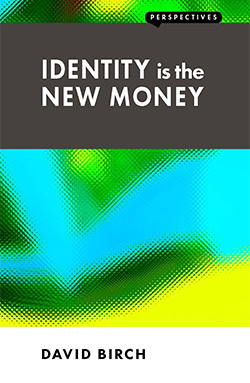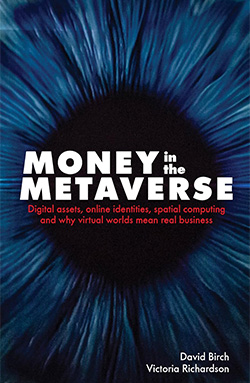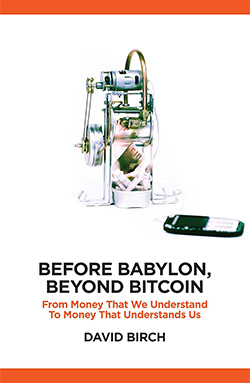David G. W. Birch is an author, advisor and commentator on digital financial services. He is an international keynote speaker and recognised thought leader in digital identity and digital money.
David is Principal at 15Mb Ltd., his advisory practice, and Global Ambassador for Consult Hyperion, the secure electronic transactions consultancy. He is Non-Executive Chairman of Digiseq Ltd and holds a number of other board-level advisory roles with companies in Europe and the USA including Tillo, PaymentWorks, Au10tix and YourSafe.
He is an Honorary President of EEMA, the European e-ID Association, a Senior Research Fellow at King’s Business School in London and a Digital Fellow at the University of Exeter Business School’s DIGIT Lab.
Before helping to found Consult Hyperion in 1986, he spent several years working as a consultant in Europe, the Far East and North America.
Once named one of the global top 15 favourite sources of business information (Wired magazine) and one of the top ten most influential voices in banking (Financial Brand), he created one of the top 25 “must read’ financial IT blogs and was found to be one of the top ten Twitter accounts followed by innovators, along with Bill Gates and Richard Branson (PR Daily). Ranked one of 2022’s global top 30 fintech influencers, he is one of the top three most influential people in London’s FinTech community (City A.M.) and rated Europe’s most influential commentator on emerging payments (Total Payments).
He is a contributor at Forbes, a columnist for Financial World magazine and has written for publications ranging from the Parliamentary IT Review to The Financial Times. He also wrote a column in The Guardian for many years. A media commentator on electronic business issues, he has appeared on BBC television and radio, Sky and other channels around the world.
Launched in April 2024 at Money 20/20 Asia, his latest book, “Money in the Metaverse”, co-authored with Victoria Richardson focuses on bridging the gap between the creators of metaverses and financial services strategists looking to create value from virtual worlds, digital assets and digital identity. The goal is to facilitate more efficient interactions between the stakeholders and more effective development of smart strategies for business today.
His last book “The Currency Cold War”, looked at the significant economic and political ramifications of the move towards digital money and examines both private and central bank digital currency basics to conclude that business and government strategies for digital currency should be a priority.
His previous book “Before Babylon, Beyond Bitcoin: From money we understand to money that understands us” was published in 2017 with a foreword by Andrew Haldane, Chief Economist at the Bank of England. In the London School of Economics (LSE) Review of Books it was described as a timely and illuminating contribution which should be widely read by graduate students of finance, financial law and related topics, as well as policy makers involved in financial regulation.
The London Review of Books called his book “Identity is the New Money” (2014) fresh, original, wide-ranging and the best book on general issues around new forms of money.
Known for having created one of the top 25 “must read” financial IT blogs, David Birch has been writing for a variety of newspapers, magazines, journals and physical and online publications since 1996 when he started writing articles for the Financial Times Virtual Finance Report – one of the first serious publications in what we now call ‘Fintech’.
He has also contributed to the Guardian, Financial World, Wired Magazine (in which he was named one of the global top 15 favourite sources of business information), Payments & Fintech Lawyer, the Parliamentary IT Review and the Journal of Payment Strategy and Systems among others. David is frequently asked to put together articles (these can be ghost written if preferred), whitepapers and briefing notes for a variety of publications.
David graduated from the University of Southampton with a B.Sc (Hons.) in Physics.








